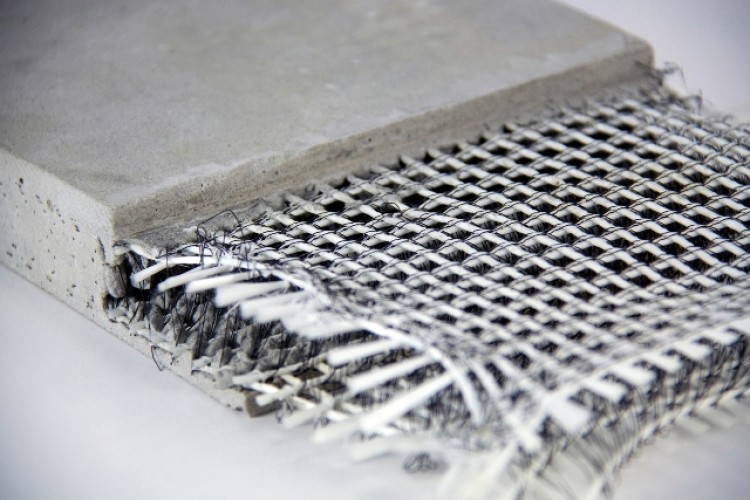Composites: Solid and Durable Construction Products
Discovering the Uses and Advantages of Recycled Composites in Modern Industries
In today's swiftly developing commercial landscape, the usage of recycled composites has garnered enhancing attention for its prospective to redefine conventional manufacturing techniques. The combinations of recycled materials with sophisticated composite innovations offers a promising avenue for boosting sustainability, resilience, and cost-efficiency throughout various industries. As industries seek innovative remedies to address environmental issues and improve functional performances, the unification of recycled compounds becomes an engaging choice. This shift in the direction of sustainable methods not only lines up with international preservation initiatives yet also uses a myriad of benefits that hold the secret to shaping the future of modern-day manufacturing methods.
Ecological Advantages of Recycled Composites
The usage of recycled compounds in modern sectors supplies substantial environmental advantages, adding to the reduction of waste and the conservation of all-natural sources. By incorporating recycled compounds into producing procedures, sectors can lower their dependence on virgin products, thereby decreasing the quantity of waste generated and the energy needed for extraction and manufacturing. This change in the direction of using recycled composites helps in diverting products from landfills, easing the problem on waste management systems, and lowering greenhouse gas exhausts connected with conventional production techniques.
In addition, using recycled compounds promotes the preservation of natural deposits such as wood, minerals, and water, which are often diminished with the extraction and handling of raw products (composites). By prolonging the life-span of products via recycling, industries can assist protect communities and biodiversity by lowering the demand for brand-new sources. Generally, the adoption of recycled composites in modern-day markets plays a vital function in promoting sustainability and minimizing the environmental influence of manufacturing processes
Boosted Toughness in Product Manufacturing
With a focus on long life and toughness, integrating recycled composites into product manufacturing procedures enhances longevity and sustainability. By making use of recycled compounds, suppliers can create products that are not only solid however likewise immune to tear and wear, making them perfect for lasting use in different sectors. The combination of various products in recycled composites can frequently result in boosted stamina and durability compared to traditional products, supplying an affordable option for creating long-lasting products.
Among the key benefits of utilizing recycled composites in item manufacturing is the capability to tailor the product homes to meet specific durability needs. By changing the structure and manufacturing methods, producers can tailor the recycled composites to stand up to extreme environmental conditions, heavy lots, or regular use without compromising on performance. This versatility in design and production permits the development of highly long lasting products that keep their stability with time, minimizing the demand for frequent substitutes and ultimately adding to an extra sustainable manufacturing process.
Cost-Effectiveness and Economic Advantages
Integrating recycled compounds right into item production not just improves toughness and sustainability yet also offers significant cost-effectiveness and financial advantages. Using recycled composites can result in decreased product prices see this page as recycled products are usually cheaper than virgin products. Additionally, recycling composite products can reduce waste disposal expenditures and decrease the demand for landfill room, adding to overall cost savings for industries.

Innovation and Design Flexibility With Recycled Compounds
Using recycled compounds in modern markets supplies exceptional opportunities for technology and style versatility. By integrating recycled materials into composite production processes, business can press the limits of typical style restraints and explore new possibilities. The convenience of recycled composites allows for the development of complicated forms and frameworks that may not be attainable with standard products.
Among the crucial benefits of recycled composites is their capacity to be molded into different kinds, giving developers the flexibility to trying out distinct forms and dimensions. composites. This adaptability opens up a globe of imaginative possibilities, allowing the growth of light-weight yet durable items that fulfill the specific requirements of different sectors
Furthermore, using recycled compounds promotes sustainable methods and sustains the circular economic climate by decreasing waste and reducing the environmental effect of making processes. This focus on green design solutions aligns with the expanding pattern in the direction of sustainability in modern sectors, making recycled composites an important resource for innovative and forward-thinking firms.
Applications Across Different Industries
Recycled composites find varied and impactful applications across a vast array of sectors because of their special residential or commercial properties and sustainability advantages. In the automotive field, these materials are progressively made use of for making resilient and lightweight elements, improving gas effectiveness and minimizing carbon emissions. The aerospace industry advantages from recycled composites in the production of aircraft parts, go right here where the materials' strength-to-weight proportion is essential for making certain security and performance. In construction, these composites are utilized for producing strong yet green structure materials, adding to lasting framework growth. The renewable resource industry uses recycled compounds in wind turbine blades and photovoltaic panels, utilizing their strength and resistance to harsh environmental problems. Additionally, the aquatic sector utilizes these products for manufacturing watercraft hulls and components, using boosted durability and rust resistance. The versatility and sustainability of recycled compounds make them useful across numerous industries, driving technology and ecological stewardship. composites.
Final Thought
To conclude, the utilization of recycled compounds in modern industries uses significant environmental advantages, boosted durability in item manufacturing, cost-effectiveness, and financial benefits. The usage of recycled composites allows for technology and design flexibility throughout different industries. On the whole, the fostering of recycled composites offers a functional and sustainable remedy for fulfilling the needs of the sector while likewise decreasing environmental impact.

One of the key benefits of using recycled composites in product manufacturing is the capacity to customize the product residential or look at these guys commercial properties to fulfill specific sturdiness demands. Using recycled compounds can lead to lowered material expenses as recycled materials are usually less costly than virgin materials. The aerospace industry advantages from recycled composites in the production of airplane parts, where the products' strength-to-weight ratio is important for ensuring safety and security and efficiency.